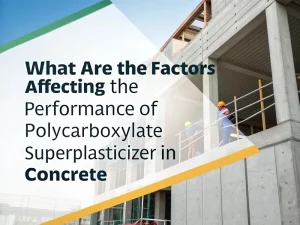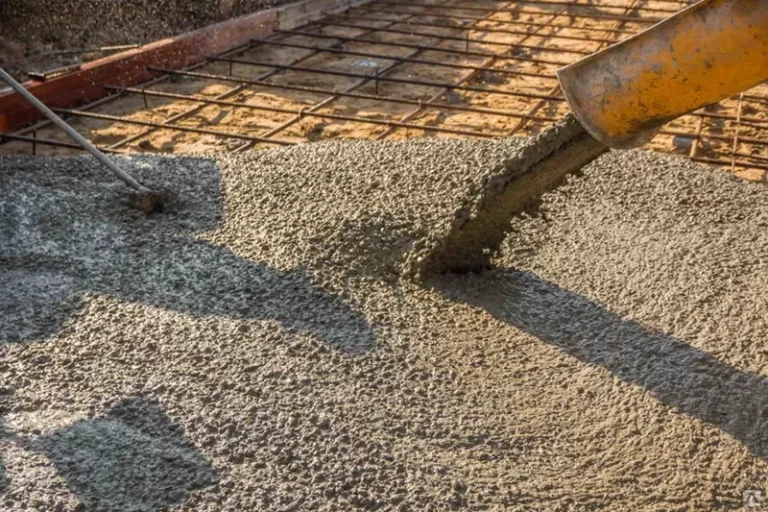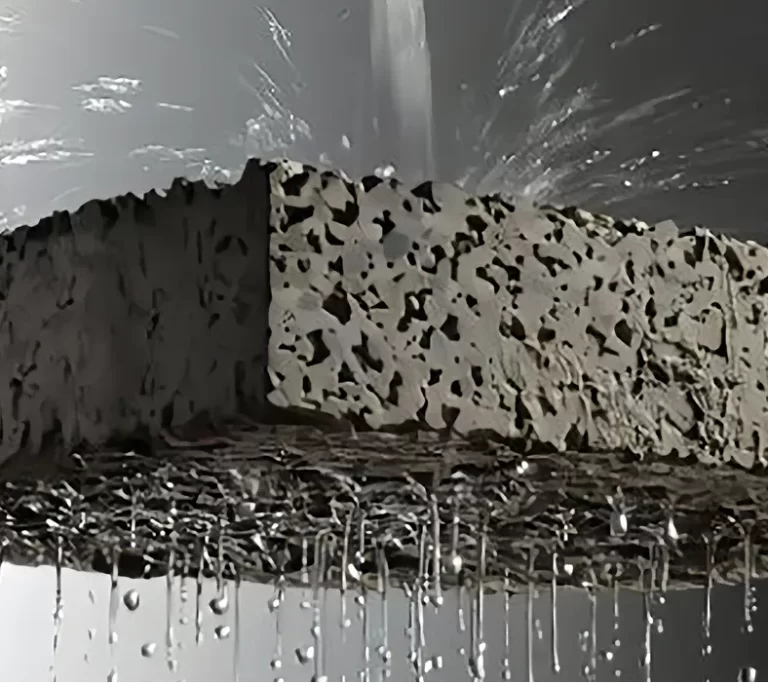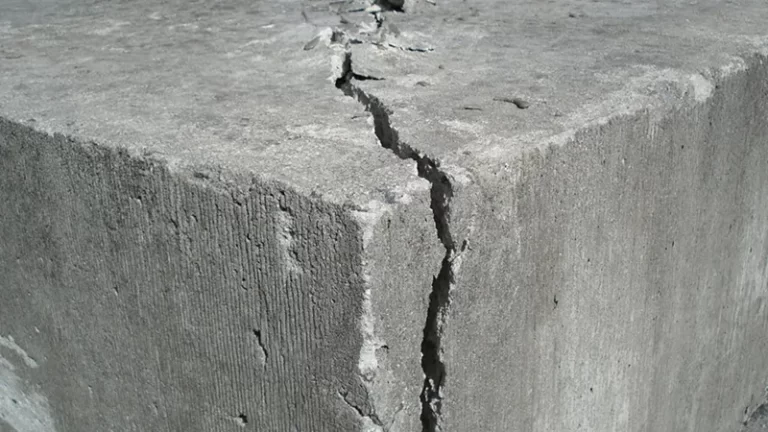
What are the factors affecting the performance of polycarboxylate superplasticizer in concrete?
Blog what are the factors
Blog

Concrete is the world’s most widely used building material; it is used twice as much in construction as all other building materials, so focusing on quality, performance, and sustainability is essential for the industry to grow and prosper.
Ordinary concrete has problems during use, such as cracking, damage, and permeability. To solve these problems, the performance of concrete can be improved by using some additives.
Concrete admixtures are substances that are added to improve and regulate the properties of concrete.These are specialized ingredients added to the concrete mixture to enhance specific properties and are added to water, cement, and aggregates in the concrete mix.
Concrete additives can be categorized into various types based on their functions and uses. These admixtures are incorporated while mixing concrete to improve its properties, such as setting time, strength, durability, and permeability.
Let’s explore the different types of admixtures and learn how each plays a unique role.
High Range Water Reducer
HRWR superplasticizer can significantly reduce the concrete water-cement ratio of concrete additives. Its main component is polycarboxylate, which can improve concrete’s fluidity and crack resistance. The current mainstream product is polycarboxylate superplasticizer.
Mid Range Water Reducer
Mid range water reducer in concrete can moderately reduce the water-cement ratio of concrete. Its main components are polycarboxylates and aliphatic alcohols, which can improve concrete’s workability and crack resistance.
Low Range Water Reducers
A low-efficiency water-reducing agent is a concrete additive that can slightly reduce the water-cement ratio of concrete. Its main components are aliphatic alcohols and acrylate polymers, which can improve concrete’s working performance and crack resistance.
The waterproofing agent is an additive that can improve concrete’s impermeability and waterproof performance.
It can make the concrete have good waterproof performance, reduce water seepage and moisture seepage phenomenon of concrete, and protect the safety and durability of the concrete structure.
Common waterproofing agents are silicate, silicone, and polymer waterproofing agents.

Antifreeze agent is a concrete additive that can improve the frost resistance of concrete. Its main components are calcium chloride, sodium sulfate, and so on.
It can harden concrete under negative temperatures and reach enough anti-freezing strength in the specified time. In addition, antifreeze improves the frost resistance and durability of concrete and reduces the appearance of frost cracks and fissures.
An expansion agent is an additive that can produce volume expansion in concrete. It can expand the concrete in the process of setting and hardening to reduce the shrinkage and deformation of the concrete and improve its anti-cracking performance.
Common expansion agents include aluminum powder, aluminum mortar, and air-bubbling agents. Expansion agents can improve concrete’s volume stability, durability, and permeability.
An early strength agent is a concrete additive that can improve the early strength of concrete with no significant effect on the late strength.
Its main components are aluminum sulfate, calcium sulfate, etc.
Its central role is to accelerate the strength of concrete in the early stages (such as the first 7 days) to shorten the curing time after construction. This additive is beneficial in projects where the design strength needs to be reached quickly, such as bridge construction, large-scale infrastructure, and emergency rehabilitation projects.
Early strength additives are often used with other concrete additives, such as water reducers and air-entraining agents, to achieve optimum construction results.
The air-entraining agent is an admixture that can introduce many uniformly distributed, stable, and closed tiny air bubbles while mixing concrete. By changing the surface tension of the mixed water, they make the bubbles form and evenly dispersed in the whole concrete. Their main components are organic acid salts, phosphates, etc.
By introducing these tiny bubbles, concrete has better impermeability and frost resistance after hardening, thus extending its service life.
In addition, air-entraining agents can reduce the water secretion phenomenon of concrete during casting and curing and improve its overall quality.
Concrete accelerator is an admixture that can make concrete harden rapidly. It is mainly used to accelerate the process of concrete setting so that it reaches the required strength quickly.
This additive is beneficial in engineering because it shortens the construction period and increases the efficiency of the work.
Concrete accelerator is usually used when the project needs to be completed quickly or with strict time requirements.
Retarding admixtures is a concrete additive that can delay the setting time of concrete. Its main ingredients are sulfate, carbonate, etc. It can slow down the hydration reaction of cement and prolong the construction time of concrete.
Retarding admixtures are proper when concrete needs to be transported long distances in unique mixers or when it is hot outside. Retarders are as convenient as grouting mixtures and can reduce water consumption.
Anti-cracking agents are concrete additives that improve the durability of concrete.
Its main components are polymers, cellulose, etc., which can enhance concrete’s crack resistance and tensile strength.

Rust inhibitor is an admixture that can inhibit or reduce the corrosion of steel reinforcement or other pre-built metals in concrete. Corrosion of steel reinforcement and other embedded metals in concrete is a common problem affecting concrete structures’ durability and service life.
The primary function of the rust inhibitor is to form a protective film in the concrete to prevent moisture and oxygen from coming into contact with the steel reinforcement, thus avoiding corrosion.
Using rust inhibitors can effectively extend the service life of concrete structures and improve their durability.
Admixtures have a variety of advantages in concrete construction. They are briefly described below:
Concrete admixtures improve the workability of concrete. It makes the concrete mixture easier to pour, place, and finish while maintaining its desired consistency, improves concrete’s fluidity, and smoother the construction process.
Certain admixtures help to increase the compressive strength and durability of concrete while improving the performance and service life of the structure.

What are the factors affecting the performance of polycarboxylate superplasticizer in concrete?
Blog what are the factors

What are the factors affecting the performance of concrete retarders?
Blog What are the factors

What admixtures are compatible with polycarboxylate superplasticizer?
Blog What admixtures are